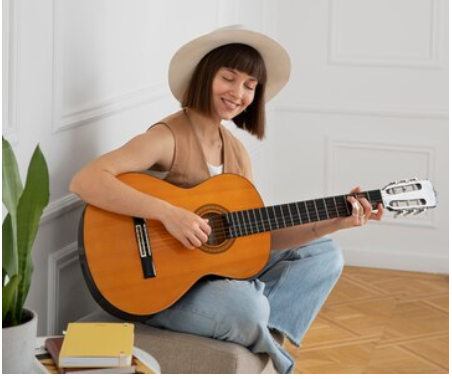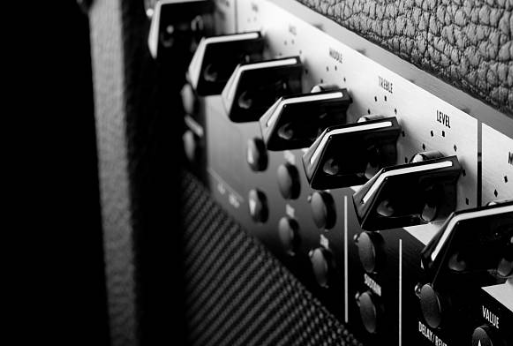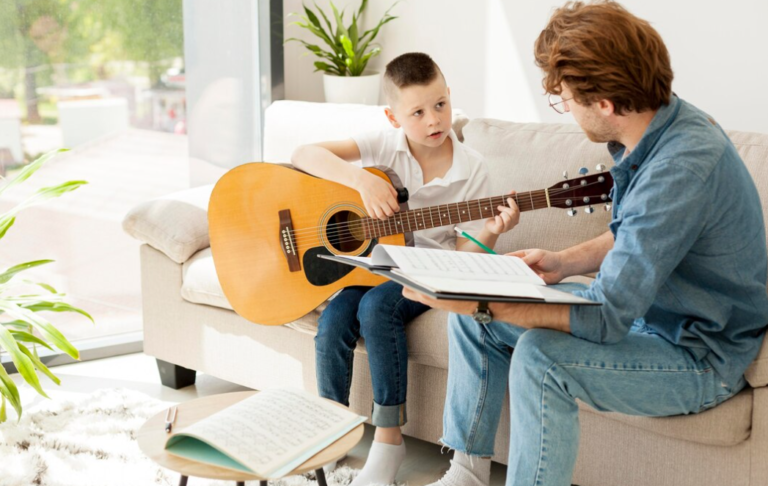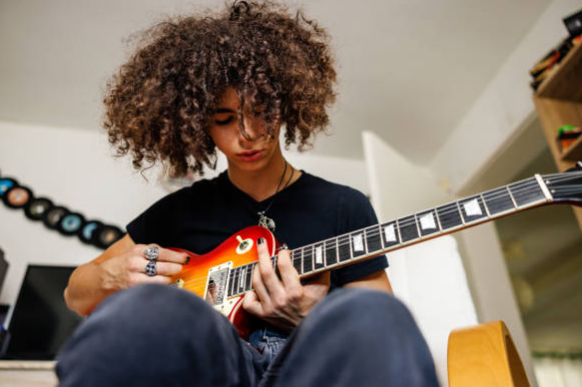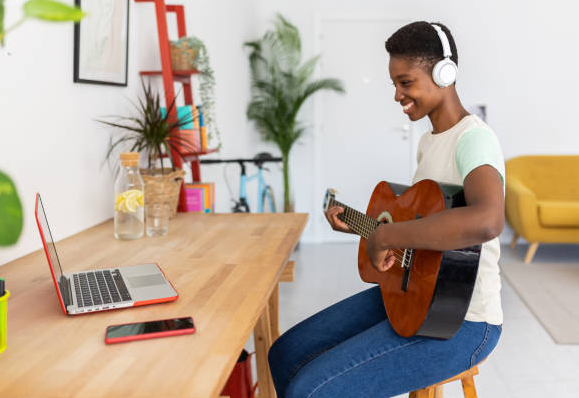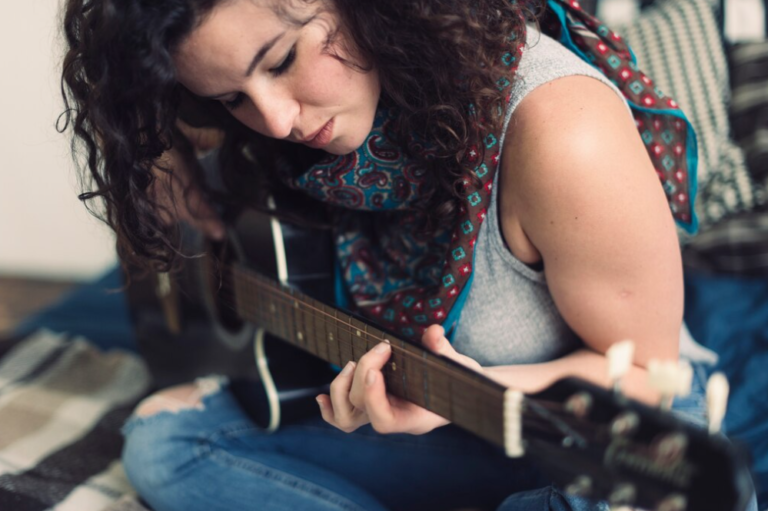Music Lessons: What Age Should My Child Start? – Easy Guide
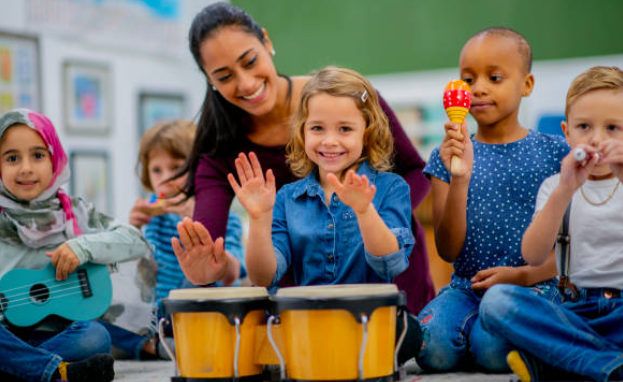
If you’re a parent wondering, “When should I enroll my child in music lessons?”, you’re not alone. This is one of the most common questions I get asked as a music instructor. And the truth is, it depends.
While there’s no one-size-fits-all answer, there are general guidelines based on child development, the type of instrument, and your child’s interest and attention span. Let’s break it down clearly so you can make the best decision for your child.
Age 0–3: Early Exposure Is Key, but Not Formal Lessons
At this age, formal music lessons aren’t necessary. However, exposure to music is incredibly beneficial.
- What to do instead: Sing to your child, play music around the house, and let them explore instruments like shakers, small drums, and xylophones.
- Why it matters: This builds early listening skills, coordination, and an appreciation for rhythm and melody.
Think of this phase as laying the musical foundation, not pushing practice.
Age 4–5: A Good Time to Start If the Child Is Ready
Between ages 4 and 5, many children can begin structured music lessons—if they show signs of readiness.
Look for these signs:
- They can focus on a task for 15–30 minutes.
- They show curiosity about instruments or music.
- They can follow simple instructions.
- They’re beginning to develop fine motor skills.
Best instruments to start with:
- Piano: Great for visual learning and coordination.
- Violin (Suzuki method): It often starts as young as 3–4, but it focuses heavily on parent involvement.
- Voice: Singing lessons at this age are light and fun. You can incorporate more musical games than vocal training.
Important note: lessons at this age should be short (20–30 minutes), playful, and centered on fun and exploration.
Age 6–9: Prime Time for Starting Music Lessons
Most children are developmentally ready for music lessons by the time they reach 6 to 9 years old. This is the sweet spot for starting serious music learning.
Why?
- They can read basic language, which helps with reading music.
- Their attention span is longer.
- Their fine motor skills are more developed.
- They’re better at understanding abstract concepts like rhythm, pitch, and timing.
At this age, they can begin structured lessons and make real progress.
Popular instruments for this age group:
- Piano
- Guitar (especially 3/4 size for smaller hands)
- Violin
- Drums
- Ukulele
- Voice lessons (more structured than in younger years)
Age 10 and Up: Still a Great Time to Start
If your child is a bit older and hasn’t started yet, don’t worry. It’s never too late to begin music lessons. In fact, older kids and preteens often progress faster because they’re more self-motivated and capable of practicing independently.
Plus, they can choose based on personal interests, like wanting to join a school band, play in a rock group, or write their own music.
Instruments older beginners often enjoy:
- Electric or acoustic guitar
- Bass
- Drum kit
- Keyboard for composing
- Voice training with a focus on pitch, tone, and performance
What About Attention Span?
This is crucial. Music lessons require focus, even if they’re fun. If your child can’t sit still for more than five minutes, it might be worth waiting a bit or trying a less structured introduction, like group music classes or music games.
As a rule of thumb:
- 4–5 years old: 15–20 minutes of practice time.
- 6–8 years old: 20–30 minutes.
- 9+: 30 minutes or more, depending on the student.
And remember: regular short sessions beat long, inconsistent ones.
Don’t Forget: Every Child Is Unique
Here’s the most important thing to remember—your child doesn’t need to follow someone else’s timeline. Some kids are ready for lessons at 4. Others might thrive if they start at 8 or 10. The goal is to foster a love of music, not to create the next prodigy.
Ask yourself:
- Is my child interested in music?
- Do they show signs of readiness?
- Can they stick with a task for at least 15 minutes?
- Am I prepared to support them (especially in the early years)?
If the answer is yes, it might be time to try a trial lesson or enroll in a beginner-friendly class.
Wrap Up
Music lessons can be a joyful and enriching part of your child’s life, building discipline, confidence, and creativity. But starting at the right time makes all the difference.
So, what’s the right age to start?
👉 When your child is ready—mentally, emotionally, and physically.
Whether that’s 4 or 9, the best time is when music feels like a gift, not a chore. Start slow, keep it fun, and support them every step of the way.
Got questions or thinking of enrolling your child? Reach out—I’m always happy to help parents navigate the start of their musical journey.
If you’re interested in learning an instrument, at Real Brave, we offer an incredible experience like no other place in music lessons for kids and adults by guiding them from the beginning stages of getting to know an instrument all the way through performing for family and friends on stage. Our instructors come from all over the world, bringing extensive experience on a wide range of instruments. Click below and book a free lesson with us!
Author: Daniel Powers Jr, the founder of Real Brave™, serves as the chief inspiration to thousands of students in the Real Brave music instruction program. He’s also the visionary behind PracticePad™, an online platform for live one-on-one online music lessons, lesson tracking, and scheduling. Beyond his entrepreneurial pursuits, Daniel leads a non-profit organization that provides formerly homeless children with access to music education, making a profound impact on their lives. His unwavering dedication to music, innovation, and education continues to inspire individuals to reach their fullest potential while creating positive change in communities. Follow Real Brave on all the socials:
Find us on Instagram: https://www.instagram.com/realbraveaudio/
Find us on Youtube: https://www.youtube.com/@realbraveinc

